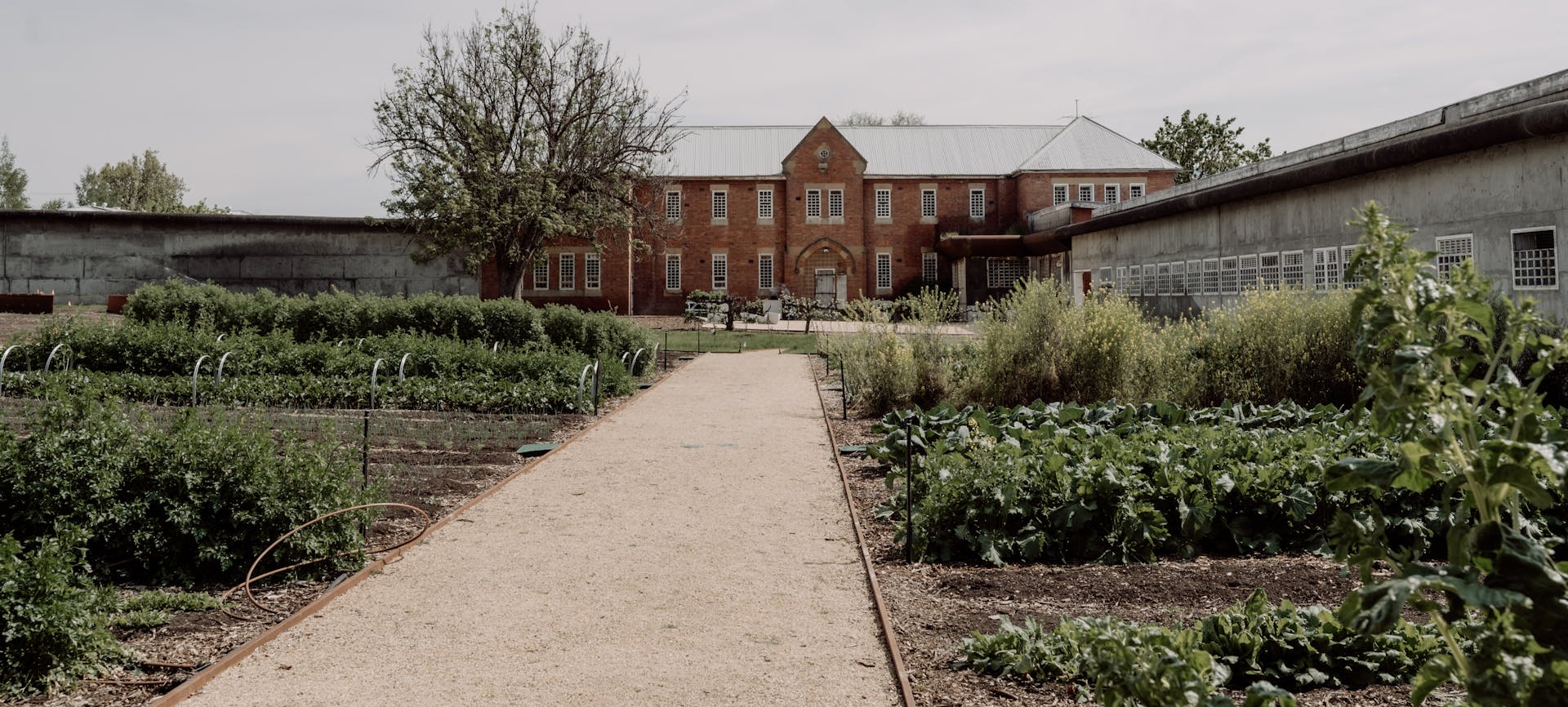About

About our Garden
The Agrarian Kitchen’s vegetable garden is at the heart of our enterprise. Located in Willow Court’s former exercise yard, just metres from our building, is a one acre, walled space contained within five metre concrete walls, designed by Head Gardener Mitch Thiessen.
Although the garden serves many functions, its primary aim is to provide high quality, nutrient dense fruit and vegetables for use in the restaurant, kiosk and classes. Underlying this production is a garden system focused on promoting a flourishing of soil and insect life, building soil fertility and minimising outside inputs.
Overall, the garden is food-focused in its design and comprises a market garden, berry patch, greenhouse, shade house, nursery, orchards, citrus grove, composting station, as well as ornamental areas. The design drew inspiration from numerous fields including, science-led regenerative farming, efficient human-scale market gardening, as well as permaculture and naturalistic design. These were considered whilst balancing a practical, pragmatic systems approach and with longevity in mind.
The garden is tended using organic principles, without the use of synthetic fertilisers, pesticides or herbicides. Overall, our growing philosophy prioritises soil and plant health. If the plant is healthy enough, we see less pest and disease pressure and higher nutrient density of the harvestable crop. Using well-made biologically rich compost, both locally bought and made in house, we are able to provide most of the nutrition our crops need. We supplement these inputs using tonics and extractions from waste generated by the Restaurant. The garden was also built, and is run, using a no-till approach.
Our vegetable growing cycle begins in our nursery, where we plant hybrid and heirloom varieties. Using our own tailored potting mixes we grow all our seedlings for use in our market garden and greenhouse. The berry patch pays homage to the local area’s history of berry growing and includes raspberries, brambles, grapes, and currants. The heat retaining walls have been utilised for citrus, with a particular focus on Japanese varieties. The protected growing space has also been harnessed to plant an orchard of peaches and nectarines. Located throughout the garden is a mixture of native food and ornamental flora, which serve important cultural and ecological roles. Whilst the garden has numerous other facets, none may be as important as the composting area. This space receives all the waste from across The Agrarian Kitchen. These valuable resources are transformed into the fertility our garden needs to thrive. This includes all organic waste from bones and shells to paper waste and food scraps.
Overall, the garden serves as the beginning and end of The Agrarian Kitchen. It provides the foundation for the philosophies that underpin our enterprise. It dictates the menus and drives creativity in our kitchen and classes. Ultimately, the garden provides the core of an agrarian tradition.